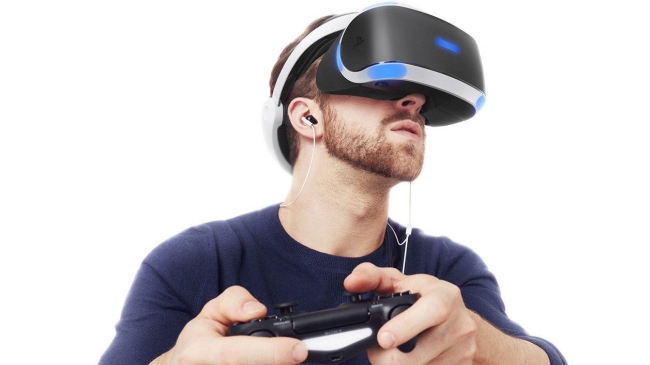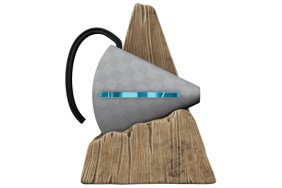The PlayStation 4’s architect, Mark Cerny, recently sat down with Wired to discuss the future of PlayStation hardware. Throughout the extensive interview are details regarding what will power the inevitable PlayStation 5 and what it might offer. Curiously, another interesting tidbit concerns the future of Sony’s PlayStation VR hardware. According to Cerny, PSVR owners need not worry about shelling out more money to experience the wonders of virtual reality on PlayStation 5.
Presently, Cerny is not ready to divulge whether a hypothetical PlayStation VR 2.0 is in the works. However, he did confirm that the PlayStation VR headset as it currently exists will be compatible with the next PlayStation console. Cerny told Wired, “I won’t go into the details of our VR strategy today, beyond saying that VR is very important to us and that the current PSVR headset is compatible with the new console.”
In addition to the reveal of such details being a smart business move, since it conveys to future PlayStation VR owners that their purchase won’t go to waste, it also seems rather bold. Cerny’s statement on the matter suggests that not only is Sony doubling down on virtual reality, the company is actively committing to the future of VR. In other words, this speaks volumes to both consumers and developers of VR experiences. VR may not be the fleeting trend folks once assumed it was doomed to become.
Since its 2016 release, the PlayStation VR has sold well over 4.2 million units worldwide. With such success, it seems Sony has already returned to the drawing board, outlining ways in which to improve upon existing hardware. This appears most notably evident in the many PlayStation VR-related patents that have surfaced online. One recent patent concerns in-game spectators. Another hints at the company’s interest in developing a wireless headset. Like any patent filed, these could merely be ideas that never come to fruition. Still, in discussing PlayStation VR’s future, they certainly warrant mention.
Expect to learn more about the PS5 as its launch draws near. Though, we know for sure that won’t happen in 2019.
[Source: Wired]
10 Series That Could Be Reinvigorated by PlayStation VR
-
10 Series That Could Be Reinvigorated by PlayStation VR

-
Ape Escape

Ape Escape has always relied on gimmicks. Some of these gimmicks turn out to be amazing features (analog sticks), while others collect dust (Move controllers). Well, since everyone is dusting off their Move controllers for PS VR anyhow, I think it's time for a new console entry in Ape Escape. A new game set in VR could do wonders, but it'll have to play like the original. It can't be an on-rails shooter, as players want to explore and find monkeys. Do it right, and Ape Escape can live once again.
-
Cool Boarders

Despite being a huge hit on PS1, the Cool Boarders series has been dormant for over a decade now. I think it's time to bring the name back, namely because I think a snowboarding game in virtual reality would be pretty sick. Make it more like classic SSX, and I think Sony could deliver a thrilling snowboarding experience for PS VR owners.
-
Jet Moto
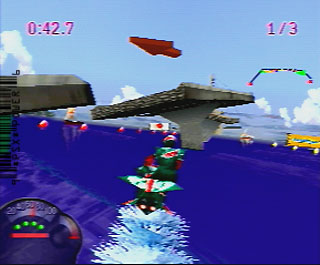
Despite there being so many racing games coming out each year, most of them focus solely on cars. That's pretty ridiculous when you think of how versatile the idea of racing is, and I'd love to see Jet Moto put the spotlight back on jet ski racing. The series found a successful audience in the 90s, and I think it could do the same on VR. It'll also feel fresh, and that's exactly what virtual reality titles should be.
-
Jumping Flash!
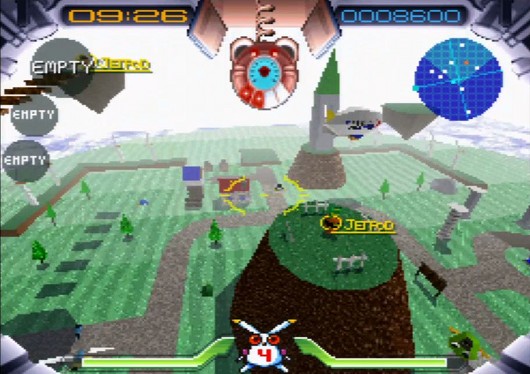
Jumping Flash is screaming for a virtual reality update. This platformer is a cult classic, and due to its HUD, it already seems pretty futuristic. The rough rudimentary 3D worlds also lends itself to a style that seems fitting for a weird VR environment, so I don't even think much needs to be adapted to work. Make it weird and trippy, and Jumping Flash can find a whole new audience.
-
Killzone

Originally dubbed as the "Halo killer," Killzone has never lived up to the lofty expectations that Sony set for the franchise. The latest entry for the series, Shadow Fall, was a mediocre affair that didn't do much to impress beyond its gorgeous graphics. I think the series can finally find its way to the top of the first-person shooter genre if becomes the first major series to focus exclusively on VR. Not only would it give Killzone a purpose, Sony could also use it to show that major franchises will show up on their headset.
-
PaRappa the Rapper

There are few worlds I want to visit more than the one I've seen in PaRappa the Rapper. Everybody seems to love music, the characters are all outrageous, and frankly, I just want to hang out with PJ Berri. If the rhythm game took place in VR then it could let players explore its wonderful world, while also delivering more of the great gameplay fans have come to expect from the series.
-
Ridge Racer
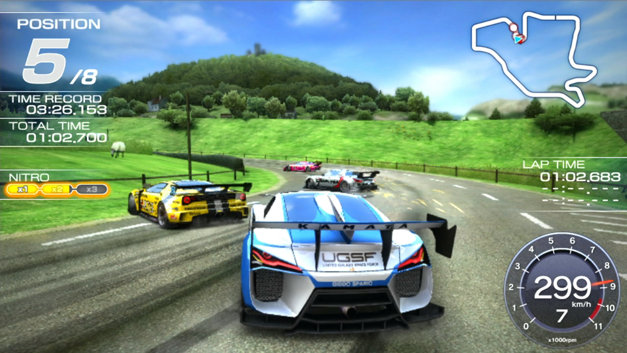
Despite not being a first-party title, Ridge Racer will always be synonymous with PlayStation. While the most recent outing was hit by a terrible pricing model (seriously, what were you thinking Namco?), the Ridge Racer gameplay still holds up. Drifting around a corner is still super satisfying, and I hope to do it again soon. Just in VR this time, since Ridge Racer needs to find a way to stand out from the crowd.
-
Siren

Horror games seem like a perfect fit for virtual reality, which should give Sony a chance to use their criminally underrated Siren series. It produced one of the scariest games on both PS3 and PS2, and I think a new VR-exclusive entry could do very well. While the series doesn't have a ton of brand recognition, Sony could still up the promotion and make it the big deal it deserves to be.
-
Tron

If one series screams "please do something with me in VR," it's Tron. Disney's franchise may be best known for its films, but video game entries have helped keep the brand alive. I think a new entry (although I'll settle for a port of Tron Evolution) could shine on VR, and I really want to ride a light cycle!
-
Wipeout

Few of Sony's series have a soft spot in my heart as much as Wipeout, which is why it's sad to see the best futuristic racing series just treading water at this point. It has never been a huge success, but if made out to be virtual reality's big racing series, it could finally connect with a bigger audience. The fast-paced racing would be a complete thrill in VR, so let's hope this happens.
